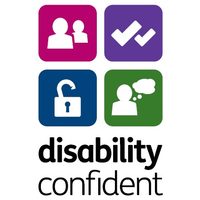Overview
Her Majesty's Prison and Probation Service is an executive agency of the Ministry of Justice (MOJ) responsible for the correctional services in England and Wales. HMPPS works with its partners to carry out the sentences given by the courts, either in custody or the community. It aims to reduce reoffending by rehabilitating the people in its care through education and employment. The agency is made up of Her Majesty’s Prison Service, the National Probation Service and a headquarters focused on creating tools and learning.
Is it in you to be a prison officer?
Like anything worth doing, this job isn't easy.
But if you have what it takes, it could be a very rewarding career. To begin with - depending on your contracted hours – prison officer jobs attract potential salaries of up to £30,000 in London and the South East. They start from £23,052 elsewhere in England and Wales. In addition, you'll receive a number of benefits including a pension and the ability to earn through overtime.
What does it take?
Do you have the right personal qualities?
- Communication Skills
- Understanding
- Assertiveness
- Integrity
These are just some of the qualities you'll need to work with offenders and support their rehabilitation. At your recruitment assessment day, you'll be tested to if you have what it takes in a series of role-play exercises.
How's your maths?
You'll need a decent level of maths to be a prison officer. As well as being able to do prisoner headcounts, you'll have to write reports. As part of your application, you'll take an online maths test. Here are some practice questions.
You can test your maths skills here.
Are you physically fit enough?
Being a prison officer is a physically demanding job. For starters, you’ll be on your feet for much of the day. You’ll also have to respond quickly in emergency situations. As part of your recruitment assessment day, you’ll have to pass a fitness test.
Have a look at this video to learn more about the fitness test that prison officer candidates complete at a RAD.
What's your eyesight like?
Good eyesight is crucial. You’ll need to meet a minimum standard in both eyes of not less than 6/36 in each eye on the Snellen scale (uncorrected) and not less than 6/12 in the best eye (corrected with glasses/contact lenses if necessary). You also need to have normal binocular field vision with at least 120 degrees of vision in the horizontal plane. Your eyes will be tested at the assessment day.
You’ll also be given a general health check and have your blood pressure measured before you’re allowed to do the fitness test - your blood pressure must be lower than 170/100 on the day.
What's your employment history?
If you pass your assessment day, you'll go into the vetting process. This is where you're asked for your employment history, and to submit to a thorough background check, so it can take a while to complete – between three and six months.
What's on offer?
So what's in it for you?
- Training: including the Prison Officer Entry-Level Training (POELT) course. On this comprehensive training programme (which is either residential or local depending on your location) you'll develop the interpersonal skills that will help you manage people in custody.
- Benefits: The starting salary for a prison officer is up to c. £30,000 plus pension and benefits for London and the South East, and £22,420 plus pension & benefits in other areas, depending on contract hours. Officers have the ability to earn extra through additional overtime.
Want to know more?
If you want to know more about becoming a prison officer and what it takes then visit the website where you can find the FAQs section and recruitment contact details.
